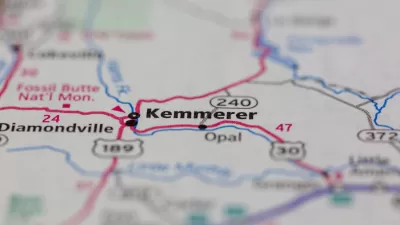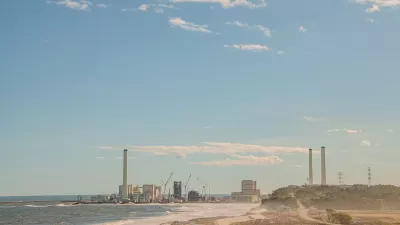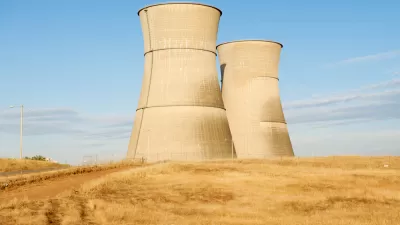He's transformed the personal computer, health outcomes in the developing world, and education opportunities in the U.S. For Bill Gates's next act, the Microsoft founder is trying to turn atomic trash into treasure.
With a team of engineers, physicists and nuclear experts at the start-up TerraPower, Bill Gates and fellow billionaire Nathan Myhrvold are trying to develop "a new kind of nuclear reactor that would be fueled by today’s nuclear waste, supply all the electricity in the United States for the next 800 years and, possibly, cut the risk of nuclear weapons proliferation around the world," writes Matthew L. Wald.
The complicated, and costly, process involves using uranium 238, the "mostly natural waste" produced by today's conventional nuclear reactors, and eliminates "several routes to weapons proliferation".
"The engineers working for Mr. Gates acknowledge the enormous challenges but say they are convinced that he, and they, are chasing the solution not only to energy and weapons proliferation but also to climate change and poverty," Wald adds.
FULL STORY: Atomic Goal: 800 Years of Power From Waste

Maui's Vacation Rental Debate Turns Ugly
Verbal attacks, misinformation campaigns and fistfights plague a high-stakes debate to convert thousands of vacation rentals into long-term housing.

Planetizen Federal Action Tracker
A weekly monitor of how Trump’s orders and actions are impacting planners and planning in America.

In Urban Planning, AI Prompting Could be the New Design Thinking
Creativity has long been key to great urban design. What if we see AI as our new creative partner?

King County Supportive Housing Program Offers Hope for Unhoused Residents
The county is taking a ‘Housing First’ approach that prioritizes getting people into housing, then offering wraparound supportive services.

Researchers Use AI to Get Clearer Picture of US Housing
Analysts are using artificial intelligence to supercharge their research by allowing them to comb through data faster. Though these AI tools can be error prone, they save time and housing researchers are optimistic about the future.

Making Shared Micromobility More Inclusive
Cities and shared mobility system operators can do more to include people with disabilities in planning and operations, per a new report.
Urban Design for Planners 1: Software Tools
This six-course series explores essential urban design concepts using open source software and equips planners with the tools they need to participate fully in the urban design process.
Planning for Universal Design
Learn the tools for implementing Universal Design in planning regulations.
planning NEXT
Appalachian Highlands Housing Partners
Mpact (founded as Rail~Volution)
City of Camden Redevelopment Agency
City of Astoria
City of Portland
City of Laramie





























